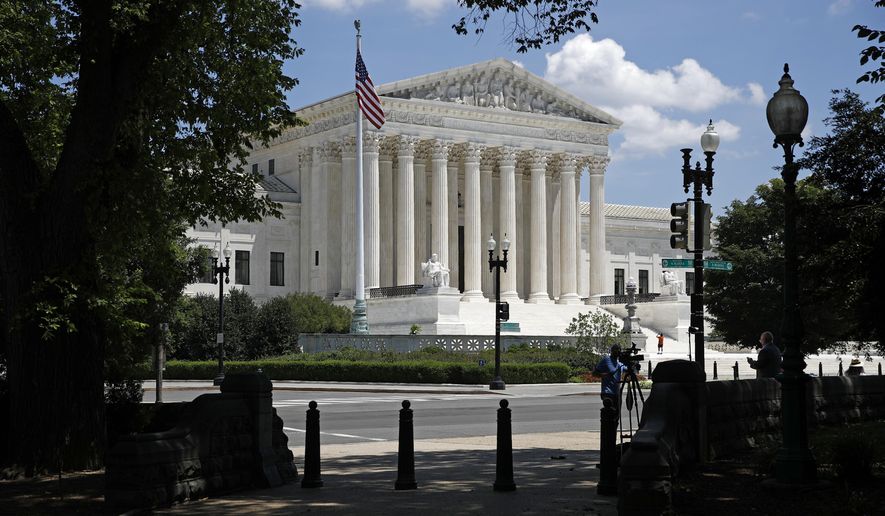A version of this story appeared in the Higher Ground newsletter from The Washington Times. Click here to receive Higher Ground delivered directly to your inbox each Sunday.
President Biden already has appointed almost as many openly LGBTQ judges in his first four years in office as President Obama did in eight years.
Seven openly LGBTQ judges have been confirmed and two others are pending confirmation in the first three years of the Biden administration, according to data collected by People For the American Way. Mr. Obama saw 11 openly gay or lesbian judges confirmed during his two terms in office.
“In the years that [Mr. Biden] has been nominating, he has almost equaled — but not quite the number — that Obama did in his period,” said Elliot Mincberg, a senior fellow with People For the American Way.
Mr. Mincberg said it’s a positive step for people coming before the courts.
“It is very important that judges reflect that diversity of lived experience and Biden has done particularly well with that in a range of areas including professional diversity as well,” he said.
Mr. Biden vowed to diversify the federal judiciary in his 2020 campaign. So far in his term, the Senate has confirmed 168 judges he has nominated, including 108 women and 111 people of color.
In addition, Mr. Biden has nominated the first Muslim man and woman for the federal judiciary and has placed the most public defenders on the bench, according to a press release last month from Senate Democrats.
He also has appointed more Black women to the circuit courts “than all previous presidents combined,” the release read.
His most notable appointment of a Black woman was nominating Justice Ketanji Brown Jackson to replace retiring Justice Stephen G. Breyer. Justice Jackson is the first Black woman to sit on the high court. Mr. Biden promised during his campaign to name a Black woman to the Supreme Court if a vacancy arose.
Curt Levey, president of the Committee for Justice, said prioritizing characteristics such as race, gender and sexuality can blunt consideration of the legal qualifications of judicial nominees.
“While it is not surprising, I think it is a bad thing for our courts when judges are being picked for something other than their qualifications,” Mr. Levey said. “He’s put such a high premium on, like I say, superficial diversity, and I think that there is a cost to that, which is that the more you — in any selection process — the more emphasis you put on one criteria, the less you can put on another.”
• Alex Swoyer can be reached at aswoyer@washingtontimes.com.




Please read our comment policy before commenting.